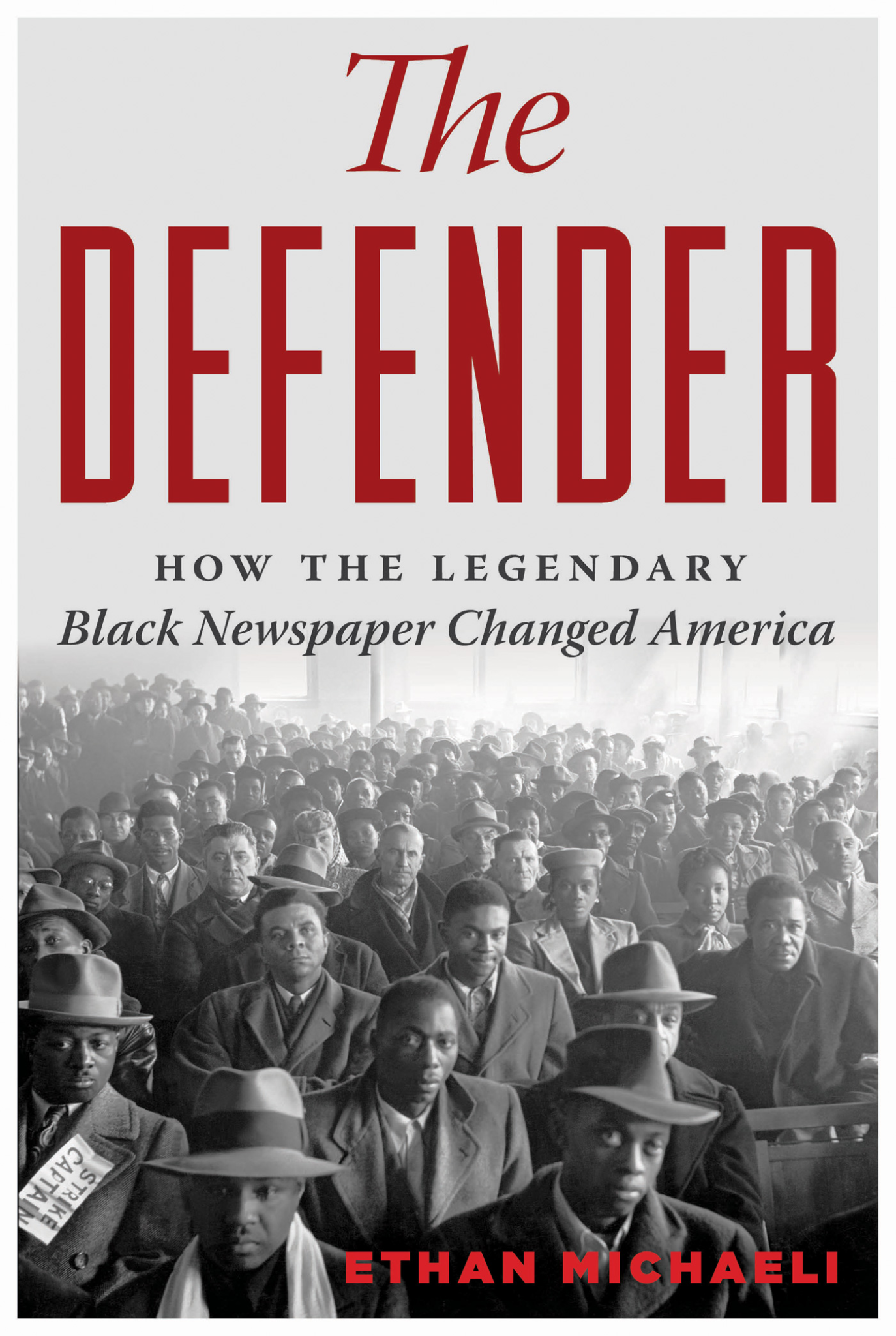When Ethan Michaeli first walked through the doors of The Chicago Defender at 24th Street and Michigan Avenue in 1991, he knew very little of the publication and its influence. His interview for a copy editor position that day was Michaeli’s first step into the world of the newspaper and its vast history. As he soon learned, Michaeli, a Jewish graduate from the University of Chicago, had just attached himself to a news source that had, in its nearly century-long lifespan, provoked social change, endorsed countless transformative politicians and political movements, exposed barbaric demonstrations of racism, and, in more ways than one, unified a nation.
The first part of Michaeli’s new book, The Defender, chronicles the efforts of Robert Sengstacke Abbott, the newspaper’s charismatic founder and publisher. A dark-skinned man born to former slaves in Georgia, Abbott grew up in the presence of his stepfather, Reverend John Sengstacke, who contributed significantly to Abbott’s eventual success. Michaeli writes, “Thanks in large part to the influence of his stepfather, he refused to let others’ reactions to his complexion hamper his own expectations…his stepfather’s colorblindness built a reserve of self-confidence in Robert on which he could draw in the coming years.”
Using the snug dining room of Henrietta Lee, the landlady of his 27th Street apartment, as a newsroom, Abbott, who “resolved to be his own reporter, editor, and circulation crew, as well as publisher,” distributed the first copy of The Chicago Defender on May 5, 1905. Though the years that followed dealt Abbott and his neophyte paper no shortage of economic hardship, The Defender’s following and staff gradually increased. Abbott went to extreme measures for fundraising and promotion, employing Pullman Car Porters to spread The Defender’s audience.
“The porters,” Michaeli writes, “in regular contact with the black communities dispersed across and beyond, were perfect emissaries for The Defender; they knew every newsstand, barbershop, and other potential distribution point, from the largest cities to the tiniest rural settlements.”
Abbott’s remarkable dedication and ingenuity didn’t go unnoticed; during the first two decades of publication, The Defender’s influence exploded. Enlisting the help of Frederick Douglass and Ida B. Wells, among others, the paper denounced the horrors of the Jim Crow South, beckoning readers North in what became known as the Great Migration.
By the time Michaeli arrived at The Defender in 1991, it had endorsed reformative politicians such as “Big Bill” Thompson, John F. Kennedy, Harold Washington, and Barack Obama; covered the triumphs of prominent black figures such as Jack Johnson and Bessie Coleman; and featured the writings of Martin Luther King, Jr., Langston Hughes, and Gwendolyn Brooks, to name a few.
Michaeli continued to work at The Defender, then under the management of Abbott’s nephew, John Sengstacke, until 1996. In addition to copyediting, Michaeli reported on the beats of the Chicago Police Department and Chicago Housing Authority, notably covering the Cabrini-Green protests. He later reported on the Nation of Islam, the Kupona Network and its fight for AIDS activism, and the Public Allies, an organization headed by soon-to-be First Lady Michelle Obama.
“It took me six years to write this book, but it was a dream that I had ever since I worked there,” said Michaeli at an author talk at the Harold Washington Library on January 14. “This was a story that needed to be told.”
Compiling the archives, interviews, and research for The Defender may have been arduous—the twenty-five-page bibliography attests to this fact—but the fruit of those labors, combined with masterful storytelling and an easy-to-follow chronological structure, makes Michaeli’s finished product a literary treasure. Michaeli draws upon rich sensory detail in his descriptions of historical scenes like Abbott’s annual Bud Billiken Parade, or the 1893 World’s Columbian Exposition. In these passages, Michaeli paints portraits that transcend the passage of time, aspiring to leave an impression that truly lasts, not unlike the newspaper itself.
“Writing this book was a way to take what I had learned about what the country really is and to take it to a broader audience,” Michaeli said. “Taking a reader through the history of The Defender, I sincerely hope, will give the reader the same experience that I had by actually being at The Defender in recognizing and learning that truth.”
If anything, the book’s sole shortcoming is its lack of information on the current state of The Defender. Though its coverage of Obama’s various campaigns drew attention, the newspaper shrunk in prominence in recent years, as it stopped its daily publication in order to navigate a more digital world. When asked at his author talk what The Defender can teach about the political and race-related plights facing Chicago today, Michaeli responded, “What we’re seeing in Chicago today often feels to me like an epilogue of this book. It often feels like we haven’t made much progress.”


